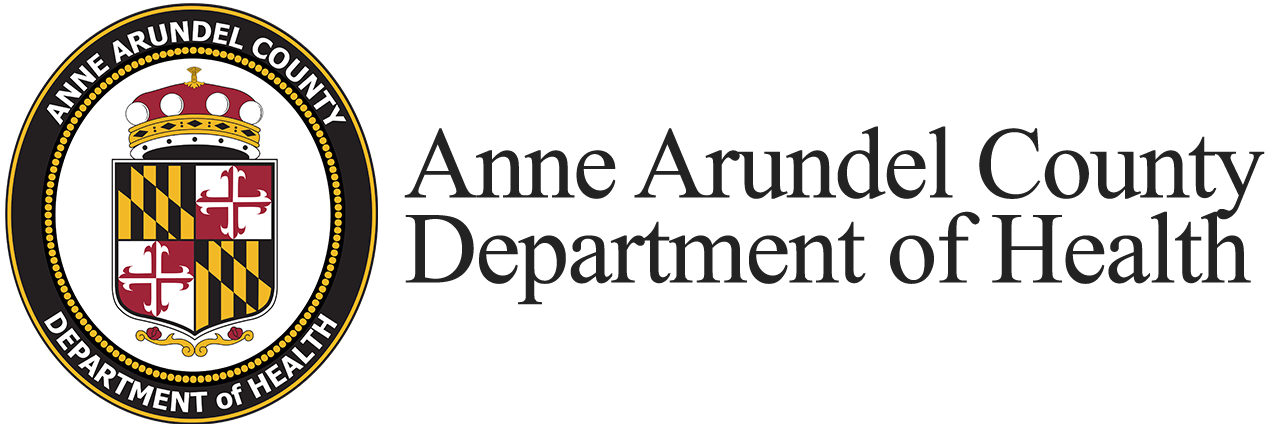Date/Time
Location
101 College Parkway
Arnold, Maryland 21012

Please join us in person for the Help, Healing and Hope Summit 2024!
Learn about and discuss current best practices, advances in research and available resources to further advance suicide prevention efforts in Anne Arundel County and across the state. Participants will have the opportunity to network and collaborate with other attendees and diverse community partners. This event has no cost and Continuing Education Units (CEUs) will be issued to attendees.
Who Should Attend?
Health professionals, community members and leaders, educators and anyone else interested in learning more about suicide prevention practices.
Agenda and Speakers
Keynotes
The importance of having a lived experience perspective in suicide prevention research
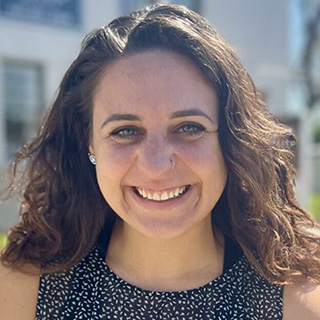
Emily Kumpf is a research associate at the Johns Hopkins Bloomberg School of Public Health in the Department of Health Policy and Management. She is a core faculty member of the Center for Injury Research and Prevention and part of the non-profit Baltimore CONNECT team. Emily’s work emphasizes community-engaged research methods with a focus on implementation science and dissemination, advocacy and health equity, and increasing community access to resources. Her research background is in suicide prevention, and she brings a lived experience perspective to her work. In addition to suicide prevention, she is interested in injury and violence prevention specifically for children and adolescents. Prior to her current role, she did a post-baccalaureate clinical fellowship in the Simches Division of Child and Adolescent Psychiatry at McLean Hospital and earned an MPH from Johns Hopkins in 2023. She is an advocate, an author and passionate about preventing suicide.
The Role of Community Involvement in Facilitating Equitable Suicide Prevention
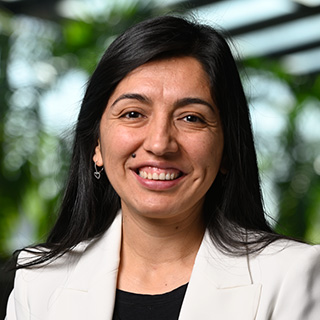
Monica Guerrero Vazquez (she, her, ella), MS, MPH, Executive Director of Centro SOL at Johns Hopkins School of Medicine is a first-generation immigrant from Ecuador. She brings extensive experience leading projects promoting well-being in underserved communities and community-based organizations. Monica passionately empowers vulnerable communities through collaborative programs with community members and multidisciplinary stakeholders, spanning Baltimore and other U.S. states. In collaboration with government and faith-based organizations, she leads the strategic management of multiple research projects that investigate barriers and facilitators to diverse clinical trial access, address mental health challenges, and create innovative programs to address socio-ecological disparities in underserved populations. Monica’s role evolved from program coordination to driving Centro SOL’s sustainability model at the intersection of academia, research and community. She designs and oversees programs in four strategic areas: research, education, advocacy and policy, and community outreach. She leads a team of about twenty faculty, staff and volunteers while managing budgets, designing key performance indicators, and planning fundraising with Johns Hopkins Development in the Department of Pediatrics. Monica excels in community engagement, participant retention, career development, and qualitative research design and methods, showcasing her leadership skills as a team player. She manages the Center’s marketing and communications, oversees SEOs, and creates and edits content. Her research interests span patient-centered and community-based participatory research, culturally appropriate teen suicide prevention, Latino and immigrant health, and the mental health impact on immigrants. Monica currently serves as a commissioner on the Maryland Commission on Suicide Prevention and Executive Director of Centro SOL, with a mission to promote equity in health and opportunities for Latinos. In 2017, she was honored to be an inaugural Fellow for the Bloomberg American Health Initiative, where they addressed the decline in life expectancy in the U.S.
Workshops
Suicide, Firearms and the Use of Extreme Risk Protective Orders
Dr. Paul NestadtObjectives:
- Review the epidemiology of firearm suicide
- Illustrate the importance of lethal means access in suicide risk
- Describe the use of Extreme Risk Protection Orders
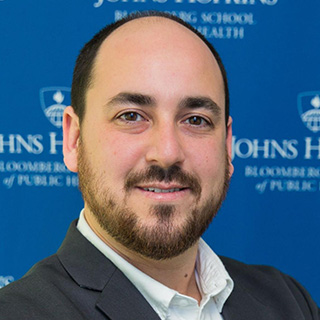
Dr. Paul Nestadt is the James Wah Professor of Psychiatry at the Johns Hopkins Schools of Medicine and Public Health, where he serves as Co-Director of the cross-school Center for Suicide Prevention. As Clinical Director of the McGlasson Anxiety Disorders Clinic and Associate Director of the Esketamine Treatment Clinics at Johns Hopkins Hospital, his clinical work centers on treatment-resistant cases. As an inpatient psychiatrist attending the JHH Motivated Behaviors Unit, he treats patients who suffer from comorbid substance dependence and other serious mental illnesses that require acute management. Dr. Nestadt is the chair of Maryland’s Suicide Fatality Review Committee and is a nationally renowned expert on the practical risk factors for suicide, such as opioids and firearm access. He has written dozens of chapters for leading psychiatric and medical textbooks, over 60 peer-reviewed papers, and has spoken nationally and internationally on the topics of suicide risk and the role of firearms, opiates, and the limitations of screening.
Ally Training
Keygan MillerThe Trevor Ally Training provides a basic framework for understanding lesbian, gay, bisexual, transgender, queer and questioning (LGBTQ) youth and the unique challenges they often face. This training is designed to create dialogue regarding what it means to be an ally for LGBTQ people by informing participants about terminology used in the LGBTQ community, the process of “coming out,” and a discussion of the challenges faced in their homes, schools and communities. Through activities, participants are encouraged to explore their own biases, build their knowledge and understanding, and develop empathy through an intersectional lens. In addition to providing this framework, the training offers specific action items to improve the environment for LGBTQ people.
After participating in this training, participants will be able to:
- Discuss the services offered by The Trevor Project and how youth can access them.
- Describe what it means to be an ally.
- Describe various terminology related to LGBTQ communities.
- Identify unique challenges facing LGBTQ people.
- Identify ways to create safer and more supportive environments for LGBTQ people.
- Identify ways to combat bias in yourself and your community by developing cultural awareness and sensitivity.
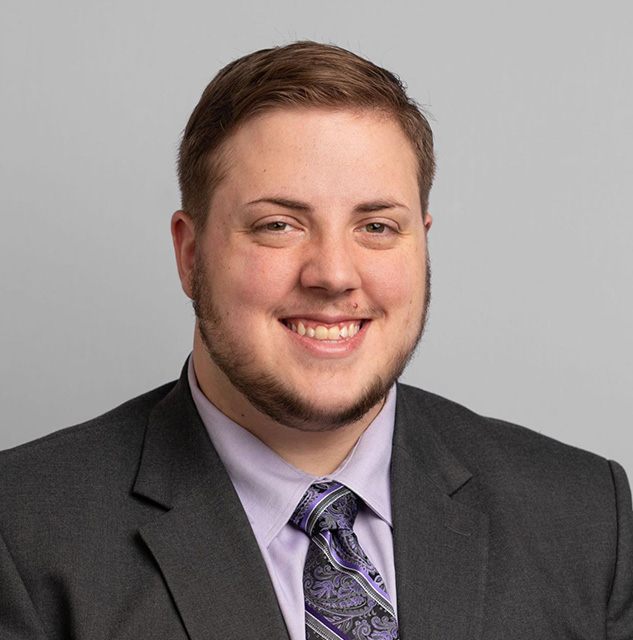
Keygan Miller (they/them) is the Director of Public Training for The Trevor Project, the leading suicide prevention and crisis intervention organization for LGBTQ+ young people. Keygan oversees the design and facilitation of public trainings to advance Trevor’s life-saving suicide prevention work and teach audiences to be strong allies for LGBTQ+ youth. Prior to this work, Keygan was an Advocacy Manager at The Trevor Project and they served as an Intervention Specialist for Cincinnati Public Schools. Keygan received a Master of Arts in Education in Curriculum and Instruction from the University of Cincinnati as well as a Master of Education and Human Development in Education Policy from George Washington University.
A comprehensive CISM (Critical Incident Stress Management) response to assist friends, family and the community after someone dies by suicide.
Lt. Steve Thomas, CCISM and Jen Corbin, LCSW-CThe Anne Arundel County Crisis Intervention Team (CIT) Unit and Crisis Response responds to assist the community after someone dies by suicide. The workshop will explain how a Strategic Crisis Action Plan is developed detailing who is assisted, what interventions (group and/or individual), who will be providing the intervention and when the interventions will take place. Interventions are coordinated among other community partners. Every Strategic Crisis Action Plan is different based on the circumstances of the death.
Learning Objectives:
- Participants will be able to describe what a strategic crisis action plan entails.
- Participants will be able to discuss how the circumstances of a death by suicide influence the Strategic Crisis Action Plan.
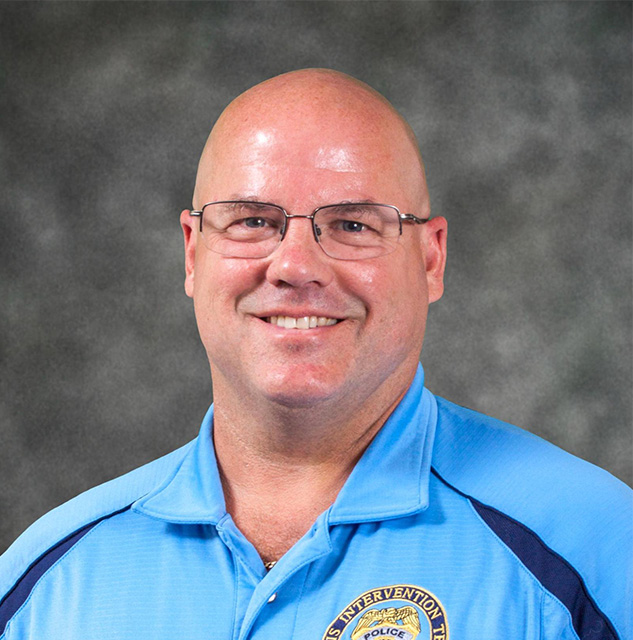
Lieutenant Steven Thomas, CCISM, has a BA from UMBC (Political Science and Sociology) and an MA from the University of Baltimore (Legal and Ethical Studies). Starting as a patrolman with the Anne Arundel County Police in 1996, he advanced through the ranks to become the Crisis Intervention Team and Peer Support Coordinator in 2016. He is on the International Critical Incident Stress Foundation (ICISF) Board of Directors and an ICISF-approved instructor. In the spring of 2019, Steven received the ICISF Pioneering Spirt Award at their World Congress. He is a Youth and Adult Mental Health First Aid Instructor and at the 2018 Mental Health First Aid Summit in Washington D.C. was named a top 100 instructor. Steven is on the Maryland National Alliance of Mental Illness Board of Directors, Maryland Traumatic Brain Injury Advisory Board and Maryland Department of Health Suicide Fatality Review Committee.
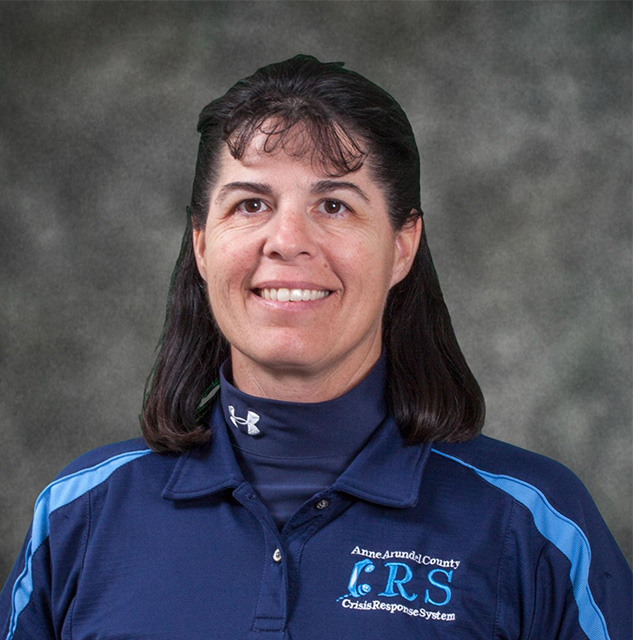
Jennifer Corbin, LCSW-C, is the Director of the Anne Arundel County Crisis Response System which is under the direction of the Anne Arundel County Mental Health Agency. Much of her work is in collaborating with outside agencies to work with the crisis system such as Anne Arundel County Police, Fire, Department of Health, Public Schools, local hospitals, and local providers. She is a trained instructor in Mental Health First Aid (MHFA) and helped train all County Police to become certified in the public safety model of MHFA. Jennifer is also trained in Critical Incident Stress Management (CISM) and helped develop a peer support team for County Police. She received her master’s degree in Social Work from the University of Maryland School of Social Work.
Do Not Pass Me By: Suicide in Black Communities
Dr. Aliya Jones, MD, MBA, FAPA, FASAMLearning Objectives:
- Discuss unique cultural, social and systemic factors that contribute to suicide in black communities.
- Explore historical trauma, discrimination, access to mental health care and stigma surrounding mental health issues.
- Discuss the importance of culturally competent care and community support networks in prevention efforts.
- Provide information on warning signs, risk factors and available resources for support and intervention.
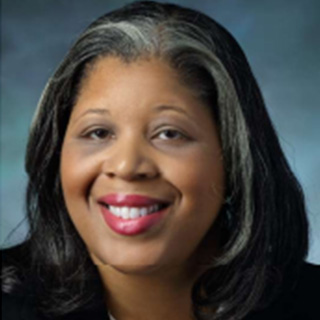
Dr. Aliya Jones serves as the inaugural Executive Medical Director of Behavioral Health for Luminis Health, which includes Anne Arundel Medical Center, Doctors Community Medical Center, McNew Family Medical Center, and related community-based services. She leads all aspects of the Behavioral Health Service Line, including strategic, operational, resource management, and educational efforts, and supports Luminis Health system leaders in achieving key strategic initiatives for population health and total cost of care. Prior to Luminis Health, Dr. Jones served as the Deputy Secretary of the Maryland Department of Health Behavioral Health Administration where she served from January 2020 until May 2022. She oversaw Maryland's Public Behavioral Health System, serving over 300,000 individuals and maintaining its stable operation throughout the COVID-19 pandemic. As Deputy Secretary, Dr. Jones initiated significant improvements to Maryland's Public Behavioral Health System, enhancing crisis services, behavioral health equity, peer recovery, involuntary commitment, and quality of service delivery. She served as Chair of the Maryland Crisis Services Workgroup, Co-Chair of the Opioid Death Disparity Task Force, Vice-Chair of the Maryland Commission on Health Equity and Co-Lead for Maryland's Monoclonal Antibody Initiative. Dr. Jones was appointed Deputy Secretary after six years with Bon Secours Baltimore Health System, where she served as Chair of the Department of Behavioral Health and Chief of Psychiatry, managing a cross-functional team and overseeing the clinical and operational performance, quality improvement, and growth of 19 departmental programs.
CARE Training
Kyle TellerThe Trevor CARE (Connect, Accept, Respond, Empower) training provides an overview of suicide among lesbian, gay, bisexual, transgender, queer and questioning (LGBTQ) people and the different environmental stressors that contribute to their heightened risk for suicide. After reviewing current research, there will be an emphasis on best practices and practical steps that allies and peers can take to promote a positive environment and respond to a person who is at risk for suicide.
After participating in this workshop, participants will be able to:
- Describe the services offered by The Trevor Project and how youth can access them
- Discuss the challenges facing LGBTQ people at home, school, work and other environments
- Explain the risk factors and warning signs of suicide
- Describe how to respond to a person who is at risk for suicide and connect them to appropriate resources
- Explain how to create supportive environments for all people that promote resiliency and decrease the risk for suicide

Kyle Teller, PhD (she/her) is the Manager of Public Training for The Trevor Project, the world’s leading suicide prevention and crisis intervention organization for LGBTQ+ young people. Kyle manages the design and facilitation of public training to promote a shared understanding of how we can all effectively engage with and be an ally to LGBTQ+ young people. Her goal is to build joyous LGBTQ+ futures through education and community connection. In previous roles, Kyle managed and facilitated educational programs for universities and nonprofit organizations. She utilized intersectional, trauma-informed learning approaches to develop high-impact programs with measurable success. Kyle earned a PhD in English with emphasis in adult education, writing and cultural studies from the University of Kansas.
MISSION: ASK THE QUESTION. Best practices for identifying, screening, and referring service members, veterans, and families.
Dana BurlBy attending this session, participants will learn the most effective way to ask consumers about military service, why it's important to screen for military service and what to do when someone says, 'yes', they or a family member have served. Participants will also receive the VA S.A.V.E. Suicide Prevention Gatekeeper training, a brief presentation on recognizing signs associated with suicide risk, asking questions related to suicide, and referring to suicide prevention resources.
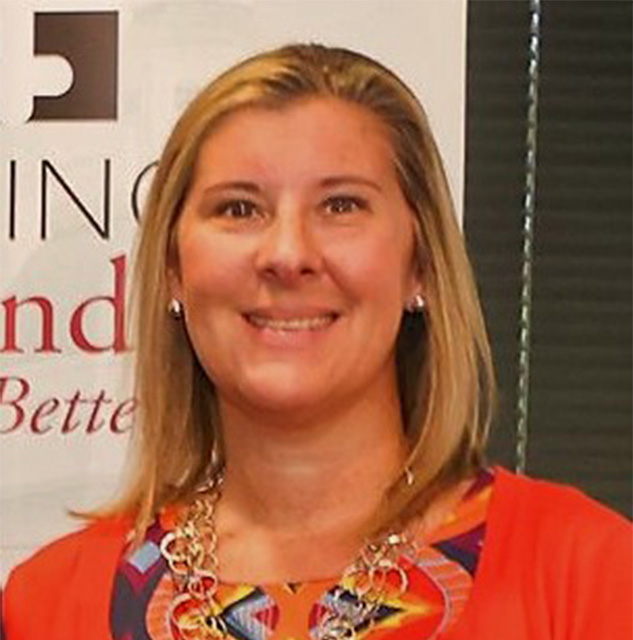
Born and raised in Annapolis, Maryland, Dana Burl began her service to the Maryland Department of Veterans Affairs as Director of Communications, Outreach and Advocacy in October 2013. She oversees communications and public affairs, acting as the Secretary's Designee to the Governor’s Commission on Suicide Prevention and the State’s Interagency Council on Homelessness. Additionally, she oversees the Maryland Veterans Service Animal and Veteran Services Specialist programs. Dana currently co-leads the Maryland-based Governor’s Challenge to Prevent Suicide among Service Members, Veterans and Families. Her professional career began in Delaware as an investigator with child protective services from 1997 to 1999. From 2000 to 2008, she offered case management services at the Anne Arundel County Detention Center and supervised work release, intake and home detention populations. She fulfilled roles as an adjunct instructor and field training officer throughout her tenure. Dana taught suicide prevention, mental health and substance misuse in both the entry-level correctional training academy and in-service training program. She served as an adjunct professor at Baltimore City Community College from 2011 to 2012 and began her service to the veteran community in 2012 as the central region resource coordinator with Maryland’s Behavioral Health Administration’s Maryland’s Commitment to Veterans Program. Dana holds a bachelor’s degree in criminal justice from the University of Delaware and a master’s in psychology from Towson University. She is a former military spouse who lives in Anne Arundel County with her two sons.
Panelists
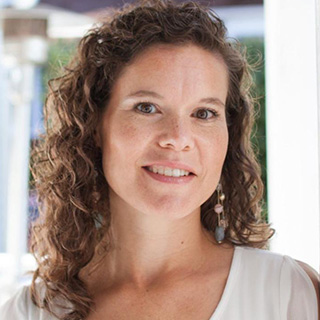
Joy Cortina is the Founder and Executive Director of Life of Joy Foundation, an Anne Arundel County-based nonprofit fostering a holistic approach to mental health and suicide prevention through integrative care of mind, body and spirit. Weaving her personal healing journey with her roles as a mother, music minister, and mental health and wellness advocate, she aims to help others heal from the root of their struggles and build their own purpose-driven Life of Joy.

Emily Kumpf is a research associate at the Johns Hopkins Bloomberg School of Public Health in the Department of Health Policy and Management. She is a core faculty member of the Center for Injury Research and Prevention and part of the non-profit Baltimore CONNECT team. Emily’s work emphasizes community-engaged research methods with a focus on implementation science and dissemination, advocacy and health equity, and increasing community access to resources. Her research background is in suicide prevention, and she brings a lived experience perspective to her work. In addition to suicide prevention, she is interested in injury and violence prevention specifically for children and adolescents. Prior to her current role, she did a post-baccalaureate clinical fellowship in the Simches Division of Child and Adolescent Psychiatry at McLean Hospital and earned an MPH from Johns Hopkins in 2023. She is an advocate, an author and passionate about preventing suicide.
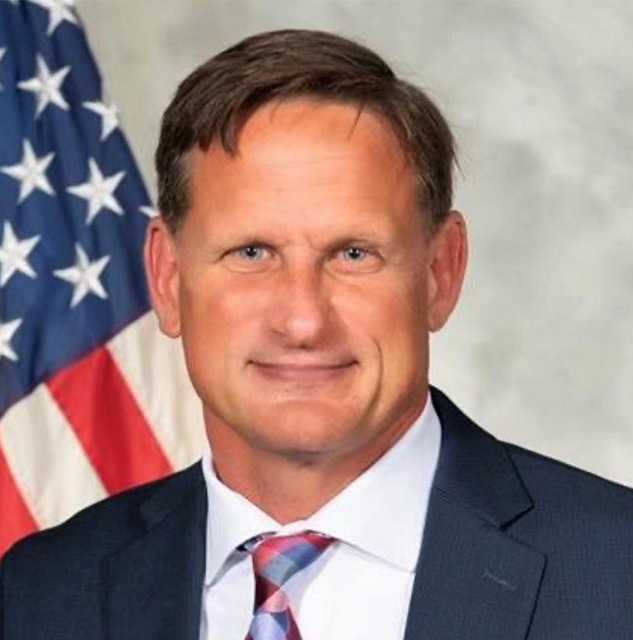
Brad Lanto, a Marine Corps Veteran and Licensed Clinical Social Worker, is an Operational Clinician for the Southeast Region within the Employee Resiliency Unit (ERU). With over 27 years of civil service, he held various behavioral health roles overseeing programs such as community counseling, suicide prevention, domestic violence and substance misuse counseling during his 20 years with Marine Corps Family Programs. Brad has extensive experience implementing national initiatives and leading quality-of-life programs. At the Department of Defense Suicide Prevention Office, he served as Military Deputy and Acting Deputy Director, overseeing the Special Operations Command Peer-to-Peer Pilot for peer support. He also advised the Senior Executive on implementing an innovative public health approach to suicide prevention. Before joining the ERU, Brad spent three years at the Department of Veterans Affairs (VA) as Field Operations Director for the National Suicide Prevention Program (SPP), managing policy and programming for about 500 medical center coordinators nationwide. He led the rollout of the SPP’s national public health initiative, Suicide Prevention 2.0, aligning community-based efforts across state and local levels while integrating a comprehensive public health approach and expanding its clinical efforts. In 2021, Brad left the VA to begin a program management role with a government contractor overseeing medical providers and mental health counselors aiding ICE and CBP on the Southwest border, before assuming his current position in May 2022. He retired from the Marine Corps in 2019 after 28 years of active duty and reserve service. He finished his career as Deputy Director for Safety and Force Preservation at the Marine Forces Reserve in New Orleans.

Justin Noel works as Students Against Destructive Decisions Coordinator for the Anne Arundel County Department of Health Behavioral Health Bureau. Since starting in 2022, Justin not only worked to grow and maintain the SADD chapters throughout the county but also revamped and revitalized the peer-to-peer program. He expanded the educational material to include a focus on mental health and how substance misuse can permeate throughout other aspects of life, such as the grieving process, mental health, teen dating and gun violence, and resilience training to name a few. Justin now works closely with Anne Arundel County Public Schools, The Sound of Silence Program and four major coalitions (ASAP, NLASA, SCBC and WASP) to bring this education material, as well as general awareness and prevention efforts to the youth of Anne Arundel County.

Maria Winters is the founder and owner of The Coaching Therapist, LLC, a practice focused on promoting mental and emotional wellness through education, training and consultation. Her passion is to normalize conversations about mental health and illness. She strives to make emotional wellness something that everyone appreciates and prioritizes. For the past 12+ years, Maria has been conducting emergency safety risk evaluations to patients of all ages in a hospital emergency department setting. She also provides group therapy to adults and adolescents and teaches Psychology courses as adjunct faculty at Anne Arundel Community College. Maria achieved her bachelor’s degree in psychology at Northeastern University in Boston and master’s in Counseling Psychology at Argosy University in Washington, DC, in 2006. She is a certified Mental Health First Aid USA instructor and completed advanced Psychological First Aid training with its creator Dr. George Everly. Maria co-hosts the podcast Wellness Rebranded, collaborating with a dietitian and personal trainer to advocate for authentic wellness from three different healing perspectives. Maria made expert guest appearances on Telemundo 44 TV station and El Zol 107.9 radio station. She has also written columns for the Capital Gazette and Luminis Health newsletter. Maria is fully bilingual in English and Spanish.
Resource Tables
- American Foundation for Suicide Prevention
- Anne Arundel County Crisis Response
- Anne Arundel County Department of Aging and Disabilities
- Anne Arundel County Department of Health
- Anne Arundel County Gun Violence Intervention Team
- Anne Arundel County Prevention Coalitions
- Anne Arundel County Public Library
- Black People Die By Suicide Too
- Danya Institute
- Hospice of the Chesapeake
- Life of Joy Foundation
- Maryland Coalition of Families
- My Life Foundation
- On Our Own of Anne Arundel County
- Pride Center of Maryland
- Service Members, Veterans, and Families Suicide Prevention Coalition of Anne Arundel County
- The Columbia Lighthouse Project
- The Department of Homeland Security Center for Prevention Programs and Partnerships
- The Maryland Center of Problem Gambling
- The Trevor Project
- University of Maryland Baltimore Washington Medical Center
